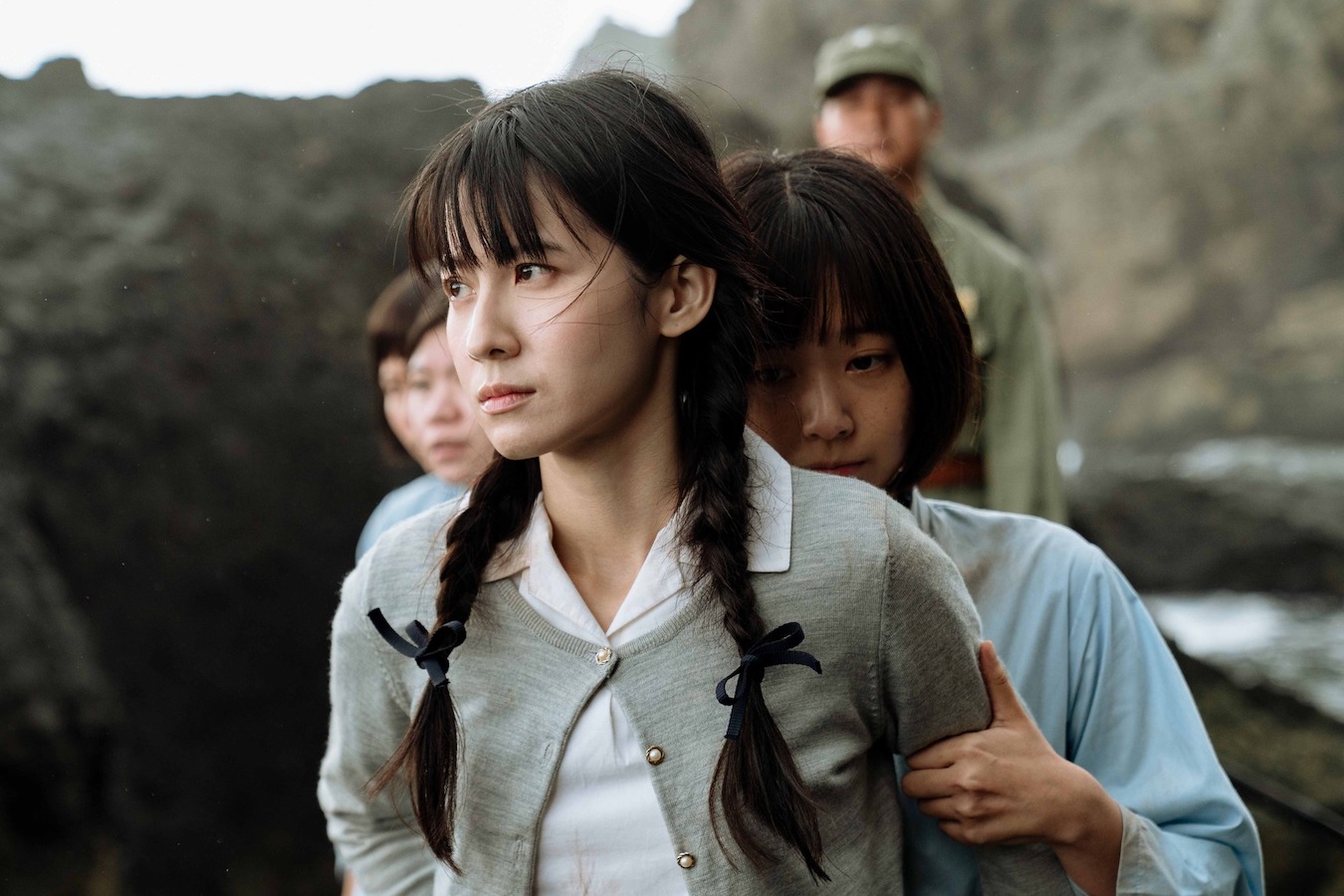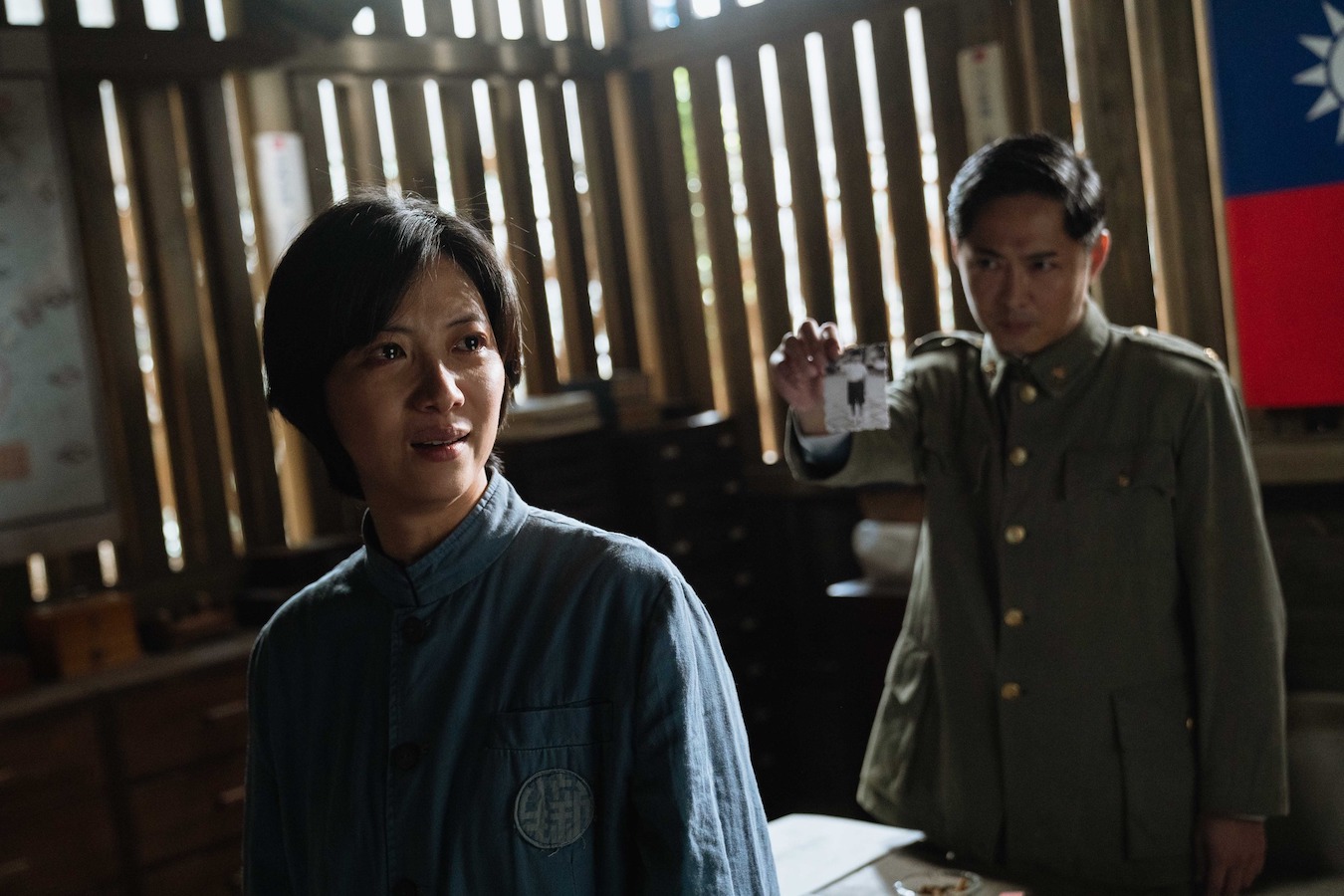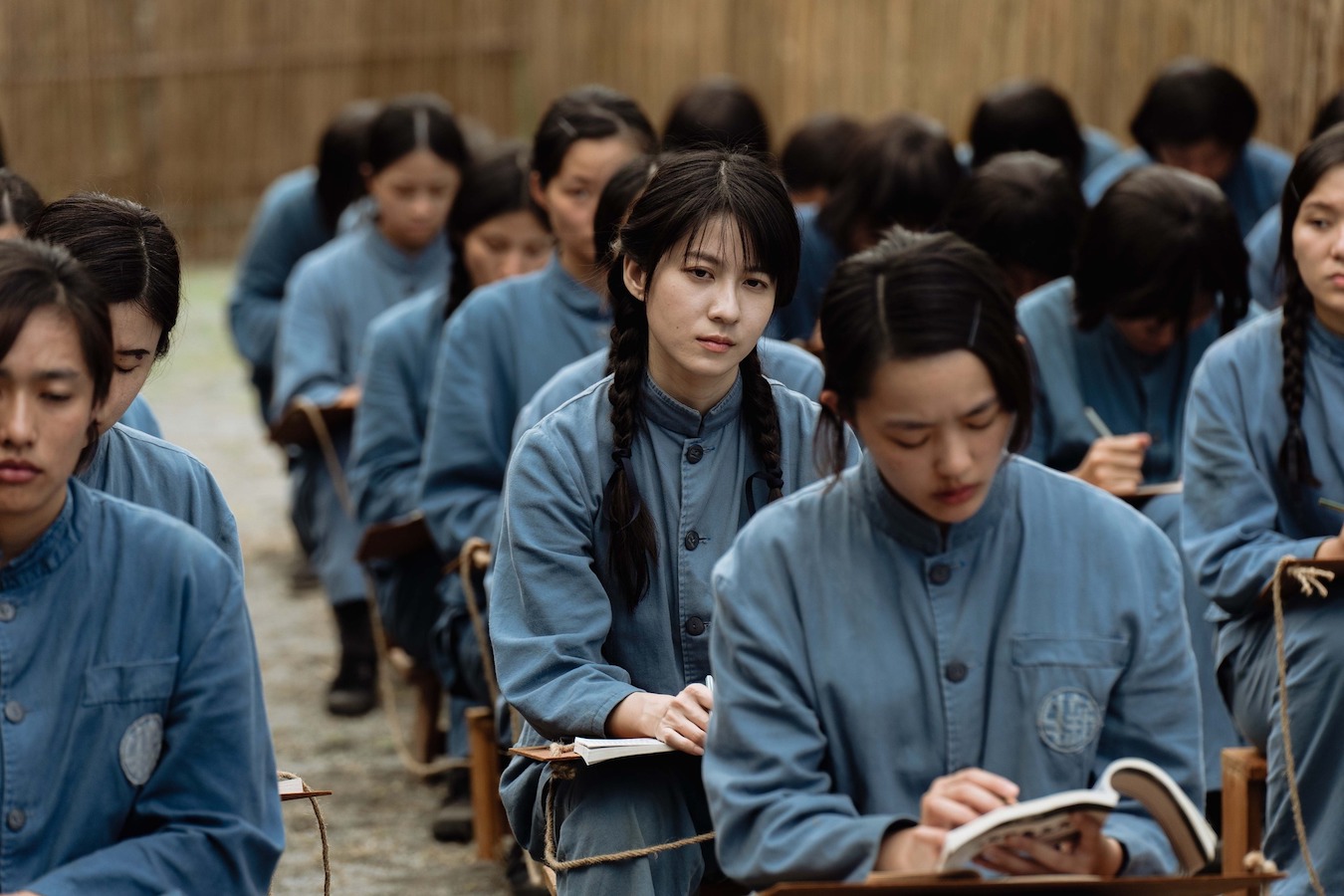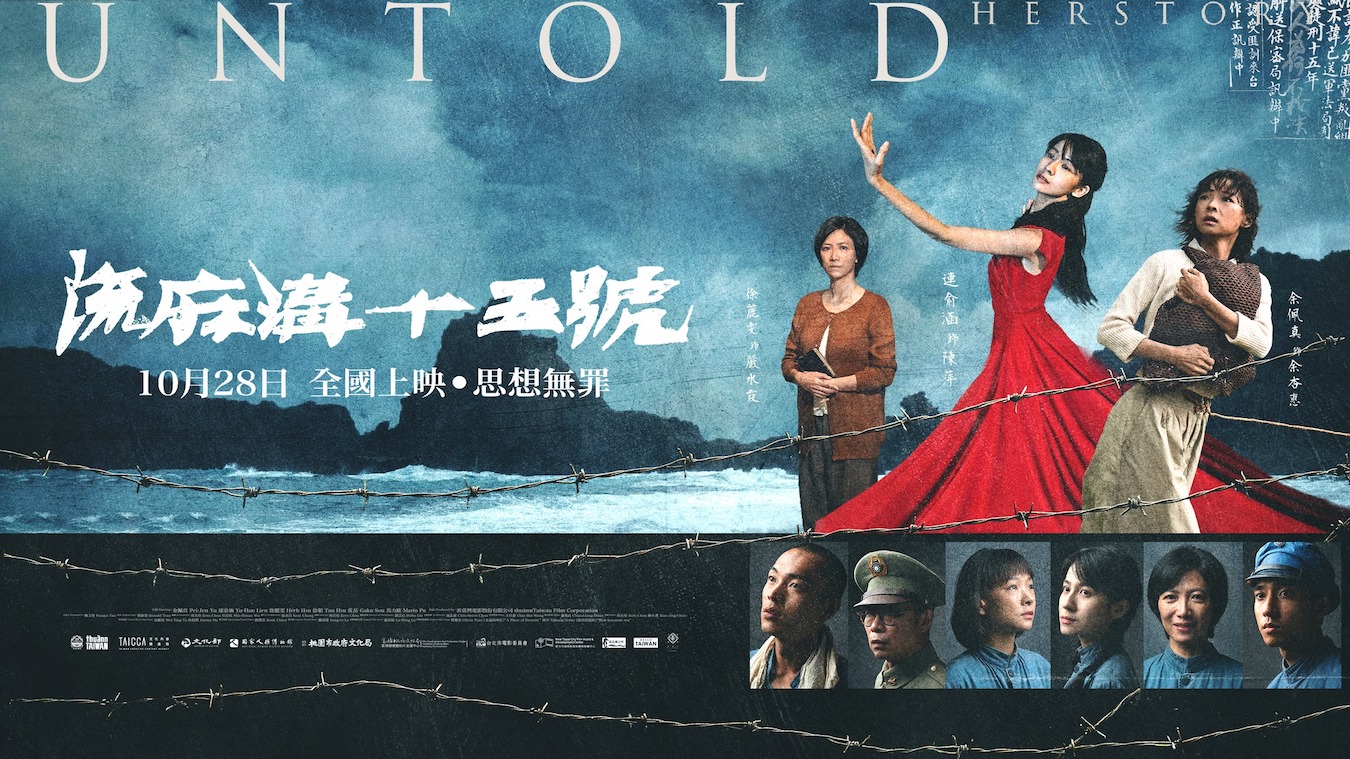by Jennifer Ruth
語言:
English
Photo Credit: Film Still
GIVE US ART forms that tell an honest history not a whitewashed one of so-called founding fathers. If America, for example, needs more 1619 stories than it does 1776 ones, then Taiwan needs more stories about 228 and the White Terror.
thuànn Taiwan, founded by Yao Wenzhi, and director Zhou Meiling (Zero Chou) deliver with Untold Herstory ( 流麻溝十 五號), the film that opens the Kaohsiung Film Festival on October 14th and begins its theatrical run in Taipei on October 28th. The film is based on true events and the lives of real women, as documented by Cao Qinrong in the 2012 book Liumagou No. 15: Green Island Girls Team and others. Through oral interviews with those who survived (one of the five women, Shi Shuehan, was executed), official documents from the files, and letters they sent while imprisoned, the book details the experiences of five female prisoners on Green Island in the early 1950s.

Photo credit: 湠臺灣電影 thuànn TAIWAN/Facebook
Out of this material, Untold Herstory’s screenwriters have crafted a story about three female prisoners representative of the women targeted for “ideological reeducation” during the White Terror. Two are clearly depicted as heroes but heroes whose strategic choices are diametrically opposed: Yan Shuixia, played by Herb Hsu (徐麗雯), refuses to compromise, holding to her principles with a strength she derives from her Christian faith. Hers is a fairly uncomplicated portrait of courage. The other, Chen Ping, played by Cindy Lien (連俞涵), is the stereotype of the “collaborator,” a person willing to do anything to survive. She, too, though, is a hero, having landed in prison by offering herself up as the ringleader of a Marxist book club so as to save others and, at the “New Life Correction Center” on Green Island, continuing to use the advantages she gains by “selling out” to save lives. These two characters both protect the third main character, Kyoko (played by Yu Pei-Jen [余佩真]), a wide-eyed innocent swept up in the terror for one or another of the nonsense reasons the KMT gave at the time.
This is not the first film set during the White Terror period. It is not even the first film about a woman prisoner during that period. It is among the first to aspire to being epic. And if the movie missteps at times, it is because, like many other dramas that are among the first to tackle large-scale historical injustices, it tries to do too much and sometimes relies on shorthands like a soaring soundtrack to tell us what to feel in lieu of character development. Critics fault Schindler’s List (1993) for its manipulative soundtrack, white-savior arc, length, and false note of triumph (Claude Lanzmann, director of the documentary Shoah (1985), famously detested Spielberg’s film because it depicted the Holocaust from the viewpoint of its vanishingly small minority—the survivors—and not its majority—the murdered). But there can be no question that Schindler’s List did what it needed to do and did it very well: it created a mainstream audience for the “unspeakable” and made key aspects of the Holocaust immediately intelligible. After Schindler’s List, movies could build out the corners of that world-historical crime because they could take for granted prior knowledge on the part of their audiences. Think of Ida (2013) or Son of Saul (2015), both brilliant films that would not have succeeded with international audiences if Schindler’s List had not laid the foundation.

Photo credit: 湠臺灣電影 thuànn TAIWAN/Facebook
Though seventy years have passed since the events depicted, Untold Herstory has been made at the right time by the right people. It is a story about repression that is itself remarkably liberated. Known for acclaimed LGBTQ+ works like Spider Lilies (2007), Zhou Meiling is a director who knows how to film women who love women. Untold Herstory is not about queer desire but it is about women whose first priorities are invariably other women. This narrative choice beautifully reflects the book on which the movie is based. Liu Ma Gou #15 is filled with the letters of the five women prisoners to the other women in their lives—letters to their sisters whom they ask to send dry goods so food won’t be moldy by the time it arrives, letters to their mothers whom they beg not to worry and to whom they repeatedly apologize for the trouble their unjust persecution has brought the family.
The woman-centered plot of Untold Herstory is in striking contrast to previous White Terror films. Take Super Citizen Ko (1994), where two generations of women blame the male protagonist for putting politics over their happiness and well-being. On top of the guilt Ko feels over the execution of his friend, he is saddled with the suicide of a wife who did not seem to grasp that he divorced her so as to protect her and the wrath of a daughter who views his political past as somehow equivalent to the ignoble actions of her corrupt husband. The women do not understand. Even Heartbreak Island (1995), told from the perspective of a female prisoner, portrays a woman who fights the authoritarian KMT regime only because she fell in love with an activist male professor and the plot itself centers not on the high-minded battle for democracy or on the courage shown in the face of brutal repression but rather on her outrage when she discovers that this professor did not wait for her during her ten-year prison sentence but rather married someone else and had a son. I said earlier that the character Yan Shuixia in Untold Herstory is a fairly uncomplicated portrait of courage and she is, but even there, we get something pointedly new. The movie makes a deliberate choice to show Yan Shuixia refusing to compromise with the regime even when it means that a child—her young son—will lose his mother. Here, gender stereotypes are invoked—the collaborating whore, the selfless mother, the love-struck girl—only to be exploded.

Photo credit: 湠臺灣電影 thuànn TAIWAN/Facebook
Untold Herstory may well be the first exposure to the White Terror some non-Taiwanese audiences have. If the actresses are a little too clean and the cinematography a little too gorgeous, this may be a cost worth paying to acquire a mainstream and international audience. Cindy Lien, who plays Chen Ping, is all over Netflix right now (Touch of Green, Gold Leaf, A Thousand Goodnights) and I expect that we will find her in Untold Herstory there as well in a few months. Much will be lost on the international audiences this movie eventually reaches—the different languages and accents on Green Island (Taiyu, Japanese, Shandong-mandarin, Zhejiang-mandarin) will go in one Anglophone ear and out the other, for example—but that’s probably okay. Lured by its beauty, audiences who know little about Taiwan will learn a great deal about a “Free China” that was anything but “free” or “China.



